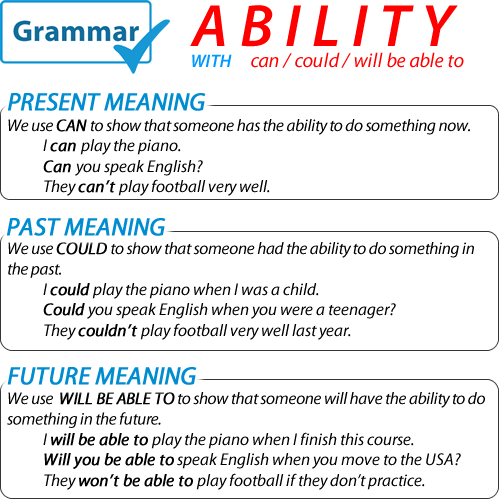In English, we use different forms to express someone’s ability to do something, whether in the present, past, or future. Let’s explore how CAN, COULD, and WILL BE ABLE TO are used to talk about ability.

1. CAN – Ability in the Present
We use CAN to show that someone has the ability to do something now.
- Examples:
- I can play the piano.
- Can you speak English?
- They can’t play football very well.
CAN is used for general abilities and skills someone possesses at the moment.
2. COULD – Ability in the Past
COULD is the past form of CAN. It is used to show that someone had the ability to do something in the past.
- Examples:
- I could play the piano when I was a child.
- Could you speak English when you were a teenager?
- They couldn’t play football very well last year.
Use COULD when talking about abilities that existed at an earlier time, but not necessarily in the present.
3. WILL BE ABLE TO – Ability in the Future
To express future ability, we use WILL BE ABLE TO. This shows that someone will have the ability to do something in the future.
- Examples:
- I will be able to play the piano when I finish this course.
- Will you be able to speak English when you move to the USA?
- They won’t be able to play football if they don’t practice.
WILL BE ABLE TO is necessary because we don’t use CAN directly for the future tense.
Summary:
- CAN = Present ability
- COULD = Past ability
- WILL BE ABLE TO = Future ability
